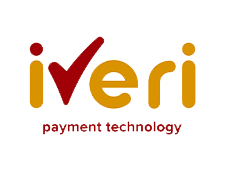VISA SUB-SAHARAN AFRICA: Targeting the Last Billion Connections of SSA’s eCommerce Potential
Sub-Saharan Africa (SSA) may currently be one of the globe’s smallest eCommerce regions, but it shows strong growth potential with leading markets such as South Africa, Nigeria and Kenya starting to mature and giving an established foundation. Visa is resolutely committed to empowering individuals and communities to prosper together, expanding access to the digital economy, and accelerating global growth.
For the last 10 years eCommerce has experienced phenomenal growth rates around the world, with even recent setbacks as a result of the continuing COVID-19 pandemic unable to arrest this rise – indeed, eCommerce sales are projected to grow to $7 trillion across the globe by 2024, according to the esteemed Wall Street Journal.
While the COVID-19 crisis has of course contributed to the acceleration of digital commerce in Sub-Saharan Africa (SSA), the wider macroeconomic and demographic fundamentals are, too, set to support continued eCommerce growth. Household incomes are on the up and predicted to remain so, while greater technological adoption and young, growing populations will provide further impetus.
GSMA Intelligence, a mobile industry expert, projects the number of mobile subscriptions in SSA will more than double and reach 1 billion connections by 2024, up from 477 million in 2019, with everything conspiring to offer payment issuers and acquirers new opportunity while helping to further accelerate the expansion of eCommerce in the region.
LEVELLING THE PLAYING FIELD
“Access is the critical component to drive economic growth for everyone, everywhere,” Visa SSA asserts. Digital inclusion is critical, with as such as 15% of global GDP based on the digital economy, and estimated to be at 25% at the turn of 2025. “This is, then, a rapid shift that we are witnessing,” comments Andrew Torre, Regional President, CEMEA, Visa.
“The challenge is that we still have 1.7 billion consumers and hundreds of millions of micro and small enterprises that are potentially not part of the digital economy.”
There is a real cost at the macro-level, Torre points out: a 1% increase in electronic payments – for which access is critical brings about $67 billion more GDP. “Digital inclusion is more than just the ability to access technology,” Torre clarifies, “it also presents the valuable opportunity to participate fully in society. However, not everyone has equal access to the digital economy, an access gap that is preventing individuals, businesses, and entire economies from availing of the multiple benefits of the digital transition.”
A new Visa initiative to support Africa’s Fintech start-ups and entrepreneurs is also being pioneered, providing training, connections, technology, and investment opportunities for up to 40 per year to help enable Africa’s expanding start-up community through expertise, connections, technology, and investment funding.
“Africa has one of the most exciting and admired fintech ecosystems in the world, bringing outstanding entrepreneurial talent to a young digital-first population that is growing fast,” said Alfred F. Kelly Jr., Executive Chairman, Visa, Inc. “Visa has been increasing our investments in Africa for decades and strengthening partnerships throughout the continent to support the next wave of innovation and growth.”
“Our new Fintech Accelerator will bring expertise, connections, and investment to Africa’s best fintech start-ups so they can grow at scale.” The support for participating fintechs will help further strengthen the payment ecosystem by fast-tracking new innovations and technologies that provide solutions to challenges that are unique to Africa, to further advance the continent’s digitisation.
“Africa’s fintech community is at the forefront of payments innovation and connecting more of the unbanked with access to the digital economy,” addended Otto Williams, Head of Partnerships, Products and Solutions, Central Europe, Middle East and Africa, Visa. “Visa has been working with this innovative community to create new programs and solutions to help fintechs scale, while giving access to Visa’s technology and partner ecosystem.”
$1 BILLION PLEDGE
“Through the new Visa Africa Fintech Accelerator, we are looking forward to working with more brilliant entrepreneurs and companies to shape the future of money.”
The launch of the Africa Fintech Accelerator program follows Visa’s recent pledge to invest $1 billion in Africa’s digital transformation over the next five years to scale operations, deploy new innovative technologies and deepen collaboration with partners. It stands as more evidence to Visa’s long-term commitment to advancing Africa’s economies and driving resilient, innovative, and inclusive economies across the continent.
Demonstrating the company’s long-term commitment to Africa’s growth potential, Visa’s expanded investments will help enable greater access to digital payments as an entry point for expanding formal financial services for individuals and merchants. The pledge will further scale Visa’s operations in Africa, and will also focus on strengthening the payment ecosystem through new innovations and technologies and investing in upskilling, talent development and capacity building.
“Visa has been investing in Africa for several decades to grow a truly local business, and today our commitment to the continent remains as firm and unwavering as ever,” affirmed Kelly. “Every day, Visa supports digital commerce and money movement in every country across the continent, and Africa remains central to Visa’s long-term growth plans.”
“Africa is experiencing an unprecedented digital acceleration, with a growing number of consumers, merchants and businesses realising the benefits of secure and convenient digital payments to fuel commerce and money movement,” Aida Diarra, Senior Vice President, Visa Sub-Saharan Africa, wound up. “Over the past year Visa has continued growing our investment in Africa, through new offices, new innovations and solutions, and programs that are directly supporting financial inclusion.”
“The investment pledge outlines our long-term commitment to Africa and the work we will do to help advance the financial ecosystem.”

